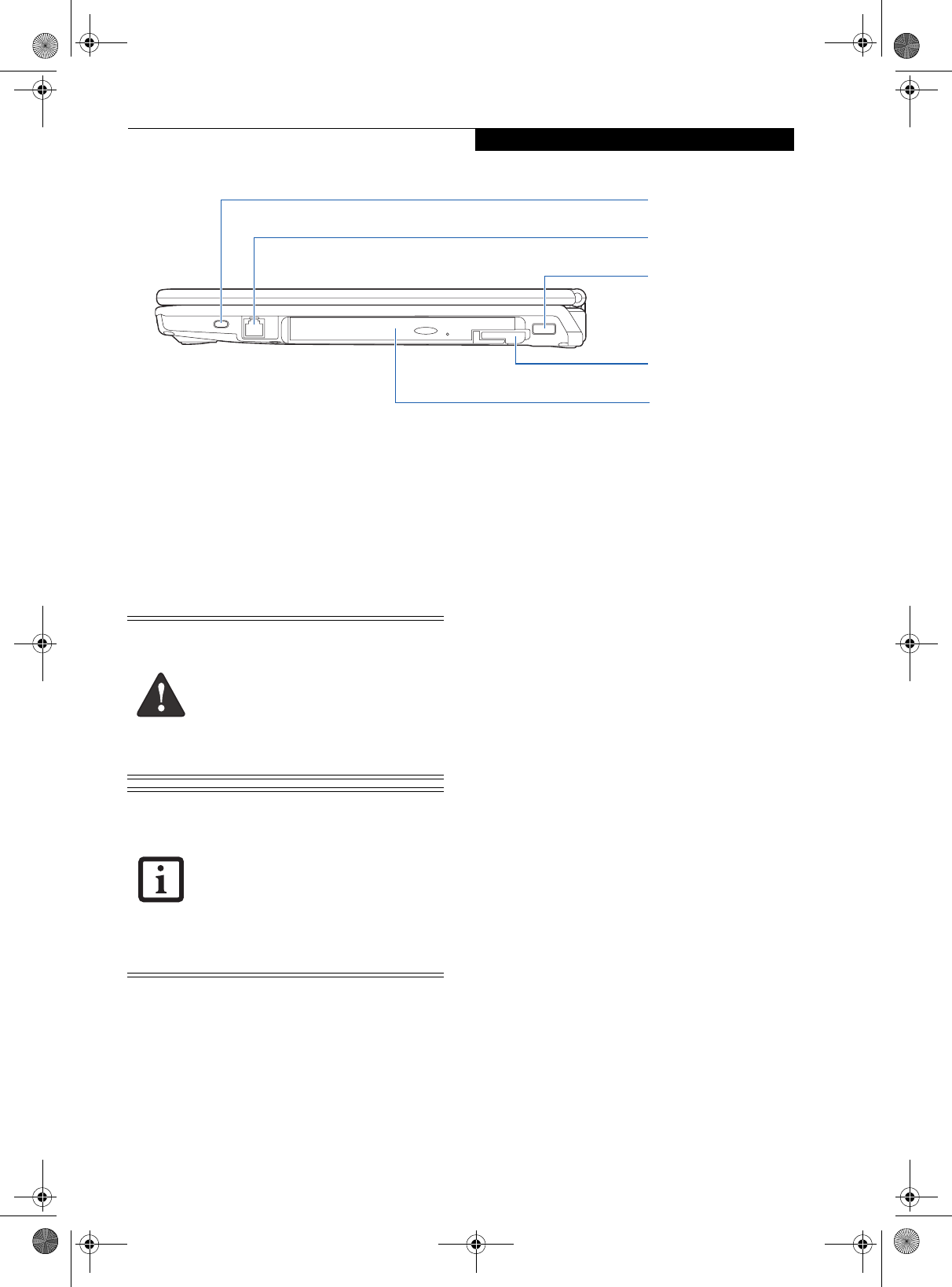
9
Getting to Know Your LifeBook
Figure 2-6. LifeBook notebook right-side panel
RIGHT-SIDE PANEL COMPONENTS
The following is a brief description of your LifeBook
notebook’s right-side components.
Modem (RJ-11) Telephone Jack
The Modem (RJ-11) telephone jack is for attaching
a telephone line to the internal multinational 56K
modem. (See Modem (RJ-11) Telephone Jack on page 52
for more information)
Flexible Bay
The Flexible Bay can accommodate one of the following
devices. (See Flexible Bay Devices on page 19 for more
information)
■
Modular DVD-ROM drive
■
Modular DVD/CD-RW combo drive
■
Modular Dual-Layer Multi-Format DVD Writer
■
Modular Lithium ion battery
■
Weig ht Saver
Flexible Bay Eject Lever
The Flexible Bay eject lever releases the Flexible Bay
device.
USB 2.0 Port
The USB 2.0 port allows you to connect Universal Serial
Bus devices. USB 2.0 transfers data at up to 480Mbps
and is backward-compatible with USB 1.1 devices,
which transfer data at up to 12Mbps. (See Universal
Serial Bus Ports on page 53 for more information)
Anti-theft Lock Slot
The anti-theft lock slot allows you to attach an optional
physical lock down device.
Flexible Bay
Flexible Bay
Eject Lever
Anti-Theft Lock Slot
USB 2.0 Port
Modem (RJ-11) Jack
The internal modem is not intended for
use with Digital PBX systems. Do not
connect the internal modem to a Digital
PBX as it may cause serious damage to the
internal modem or your entire notebook.
Consult your PBX manufacturer’s
documentation for details. Some hotels
have Digital PBX systems. Be sure to find
out BEFORE you connect your modem.
The internal multinational modem is
designed to the ITU-T V.90 standard. Its
maximum speed of 53000bps is the
highest allowed by FCC, and its actual
connection rate depends on the line
conditions. The maximum speed is 33600
bps at upload.
For additional information about the
multinational modem, refer to the Fujitsu
website at: us.fujitsu.com/computers
S7110.book Page 9 Monday, March 20, 2006 1:56 PM


















